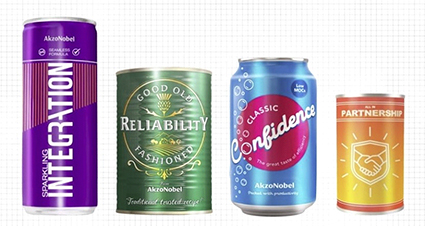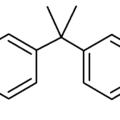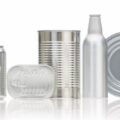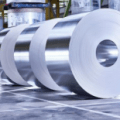Over time, the use of bisphenols, including BPA, has become an issue of concern. These chemical compounds have been widely used as coatings on metal can packaging, but recently regulatory attention on them has grown. For this reason, many companies have developed new BPA- and bisphenol-free alternatives for the above-mentioned containers and are looking for other alternatives.
Chris Bradford, AkzoNobel Industrial Coatings Marketing Manager Chris Bradford details the reasons why the industry is moving away from bisphenol-based coatings and what impact that will have on metal food and beverage can packaging.
With stricter regulations on the horizon, the metal can packaging industry will continue to face new challenges this year and beyond. This is evidenced by the fact that the European Food Safety Authority (EFSA) is expected to issue its latest regulatory verdict on tolerable levels of BPA based on further scientific assessment and public consultation. The result can only mean further restrictions on the use of BPA-based coatings on food and beverage contact products in the EU.
“We know we can move away from not just BPA, but all bisphenols for food and beverage contact materials. Bisphenols, of any kind, are no longer needed to create coatings for metal can containers.”
said the expert, who added that “as regulations tighten in the next year or two, manufacturers will have to make the transition. Can makers will be working with their trusted coating partners in the coming months to migrate much more quickly to a bisphenol-free world.”
What issues does the industry face as it evolves into this new stage?
Experts say the road to total freedom from GAP will be challenging. This will be compounded by the speed and frequency of change as we adopt and integrate alternative technologies into the commercial mainstream. Preventing the interim adoption of regrettable substances and minimizing the number of technological changes will reduce risk and economic impact.
There is currently a shortage of experts who are able to assist and provide answers to food and beverage can producers through the transition in a way that is commercially and economically viable. “We will have to be careful not to create serious problems in the supply chain or cause negative impacts on consumers. Metal can container coating technology has advanced to the point where bisphenols of any kind are no longer necessary to create safe coatings.”added the expert.
What are the necessary requirements that alternative coating solutions must meet?
To ensure customer satisfaction, bisphenol-free coatings will be required to be as tough and robust as all other coatings. They will have to meet or exceed all government regulations and successfully undergo extensive quality-critical testing with can manufacturers to be as good as or better than traditional coatings to withstand the harsh processing needs of the food and beverage industry, including retorting, pasteurization and mobility. They will also have to adapt to some of the more challenging new types of beverages that are becoming commonplace in the market.
In order to successfully implement non-bisphenol technology, the process will have to be commercially viable. This means that the new alternatives are designed to fit perfectly with existing production procedures.














